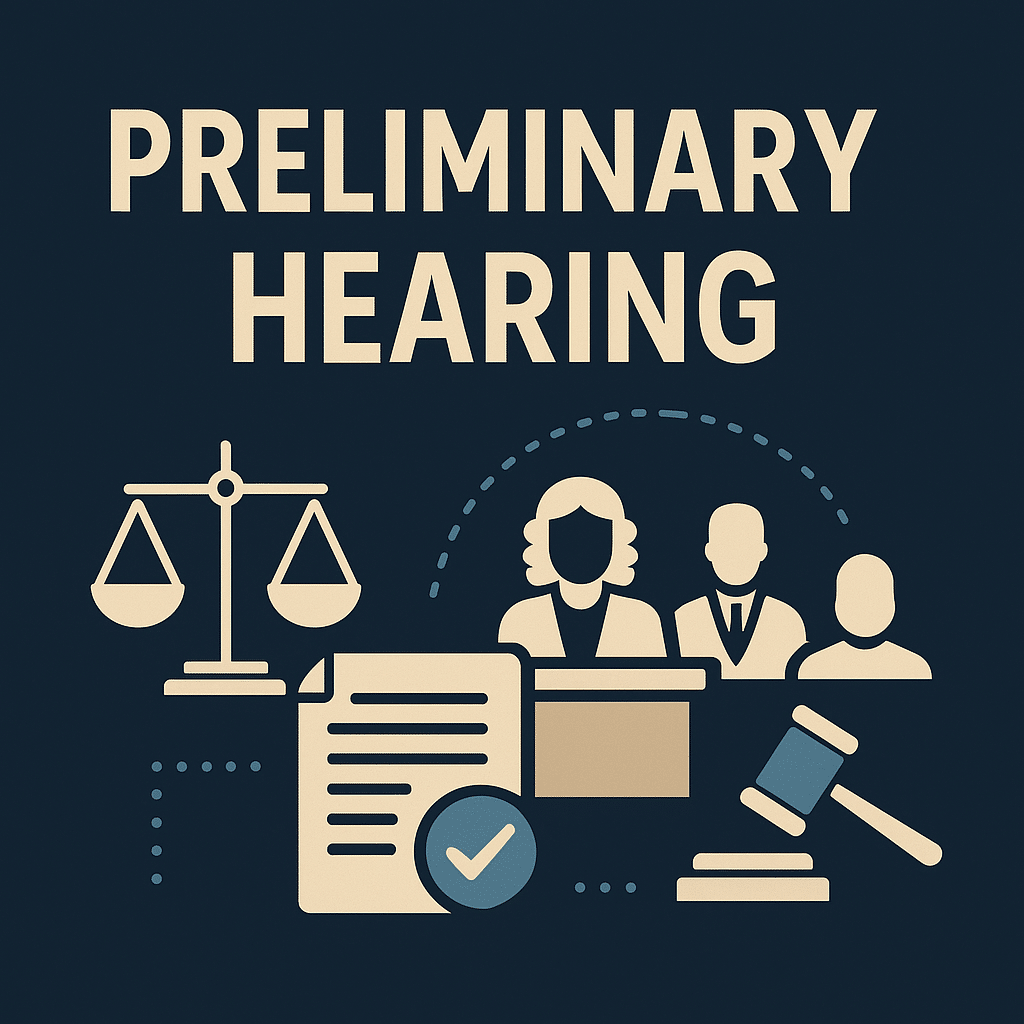
If you’ve been charged with a felony in Maryland, your next court date may be a preliminary hearing—a crucial step in the criminal justice process. But what exactly is a preliminary hearing, and why does it matter?
At Southern Maryland Criminal Defense, we believe every defendant should understand their rights and what to expect in court. Here’s what you need to know if you or someone you love is facing felony charges in Charles, Prince George’s, Calvert, or St. Mary’s County.
What Is a Preliminary Hearing?
A preliminary hearing is a court proceeding where a judge decides whether there is enough probable cause to believe that a crime was committed and that the defendant committed it. This is not a trial. The judge does not determine guilt or innocence but simply whether the case should move forward.
In Maryland, preliminary hearings apply only to felony cases that begin in the District Court. If your case is brought directly by grand jury indictment, no preliminary hearing will be held.
When Does a Preliminary Hearing Occur?
Under Maryland law, a preliminary hearing must occur within 30 days of a defendant’s request. If you don’t request one, it’s automatically waived. This makes it critical to speak with a criminal defense attorney immediately after you’ve been charged.
In Southern Maryland, preliminary hearings are typically scheduled quickly in District Courts located in La Plata, Upper Marlboro, Leonardtown, or Prince Frederick, depending on where the charges were filed.
What Happens During the Hearing?
At a preliminary hearing:
- The prosecutor presents basic evidence to show probable cause. Often, this includes testimony from the investigating officer rather than the alleged victim.
- The defense attorney may cross-examine the witness but cannot present a full defense or call their own witnesses at this stage.
- The judge decides whether the case should move forward to Circuit Court for further proceedings, including a possible trial.
It’s important to know that the burden of proof is low at this stage—just enough evidence to support the charge, not prove it beyond a reasonable doubt.
Can the Case Be Dismissed at a Preliminary Hearing?
Yes—but it’s rare. If the judge finds no probable cause, the case can be dismissed. However, prosecutors can often refile charges or seek a grand jury indictment, so dismissal doesn’t always mean the case is over.
Still, preliminary hearings can be strategically valuable. A skilled Southern Maryland criminal lawyer may use the hearing to:
- Cross-examine the lead officer and lock in testimony
- Discover weaknesses in the prosecution’s case
- Start plea negotiations
- Argue for reduced bail or release conditions
Can You Waive a Preliminary Hearing?
Yes. Defendants in Maryland have the right to waive their preliminary hearing. This may make sense if you’re already negotiating a plea deal or if your attorney advises it for strategic reasons. But never waive a hearing without consulting legal counsel—it could mean giving up an important opportunity to test the State’s case.
Why a Local Criminal Lawyer Matters
Preliminary hearings are fast-paced, technical, and strategic. Having a local attorney who regularly practices in Southern Maryland courts gives you the advantage of familiarity with judges, prosecutors, and procedures in:
- Charles County
- Prince George’s County
- Calvert County
- St. Mary’s County
At Southern Maryland Criminal Defense, we know how to use preliminary hearings to protect your rights, challenge weak charges, and begin building a strong defense from day one.
Charged with a Felony? Don’t Wait.
If you’ve been charged with a felony in Maryland and have a preliminary hearing coming up, time is critical. Contact our office today to speak directly with a Southern Maryland criminal defense lawyer who knows how to fight for you from the very beginning.
